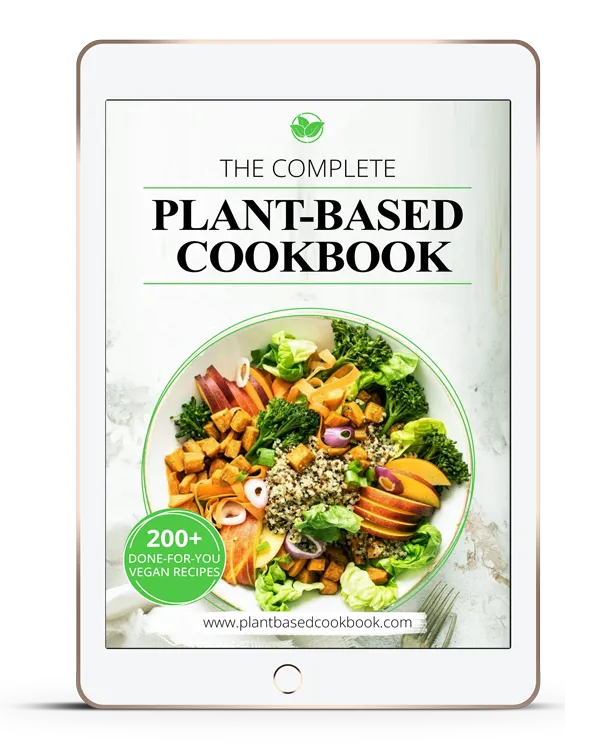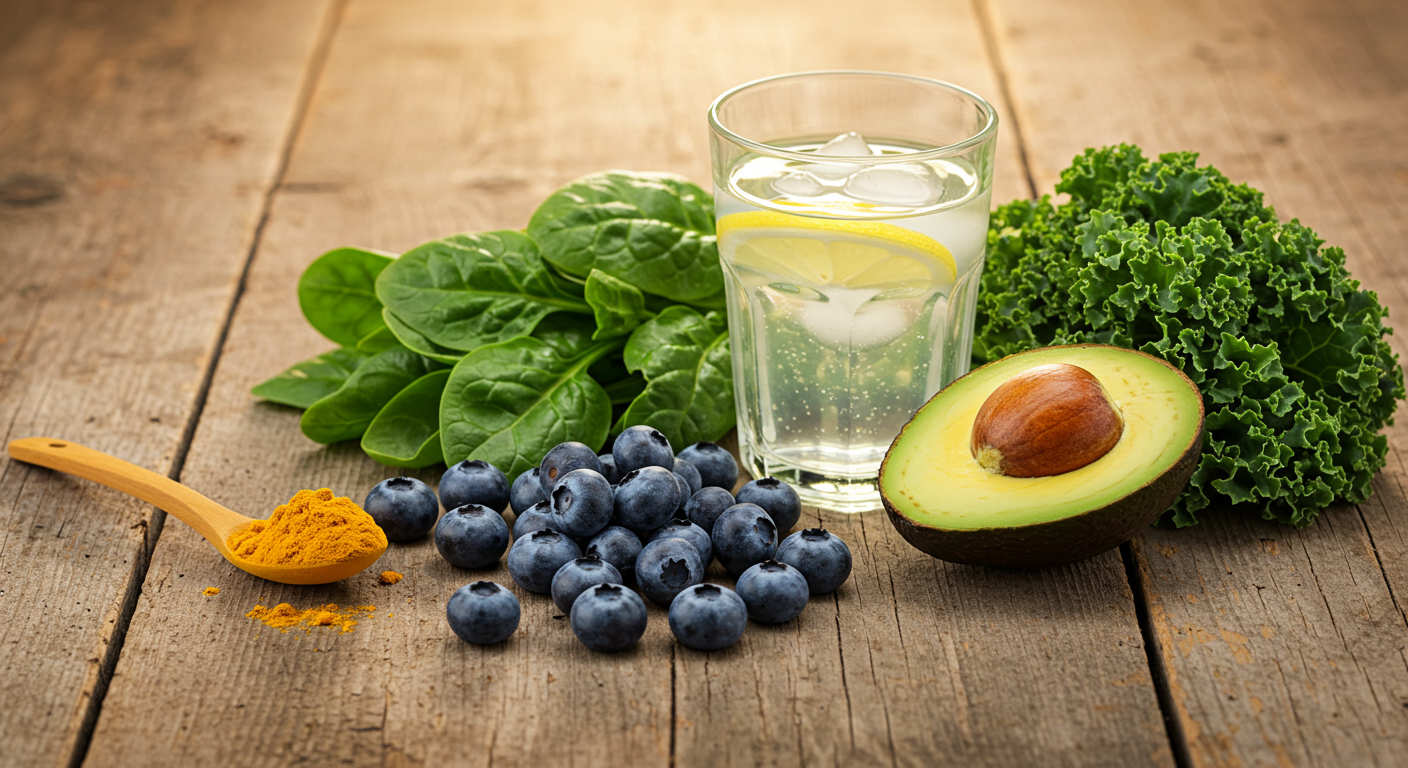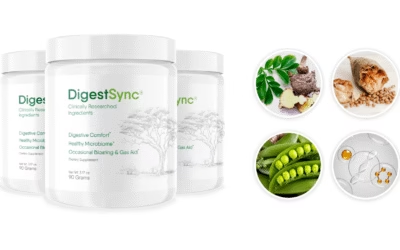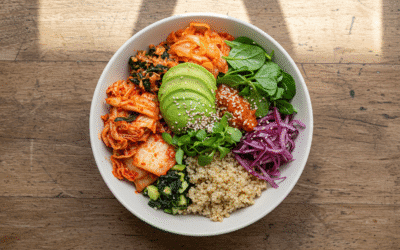Inflammation is the root of many chronic conditions — from joint pain and fatigue to skin issues and digestive trouble. But the good news? The food you eat can be your best defense. Incorporating anti-inflammatory foods into your daily meals can calm your system, restore energy, and protect long-term health.
What makes a food anti-inflammatory?
Anti-inflammatory foods are rich in antioxidants, fiber, and essential fatty acids. They help neutralize free radicals, support gut health, and reduce the release of pro-inflammatory molecules in your body. These foods are often whole, plant-based, and minimally processed — nature’s own medicine cabinet.
1. Leafy greens
Spinach, kale, arugula, and Swiss chard are packed with vitamins A, C, and K, plus antioxidants like quercetin and kaempferol. Add them raw to smoothies, toss into salads, or lightly sauté with garlic and olive oil.
2. Berries
Blueberries, strawberries, and raspberries are full of polyphenols that help lower inflammation and oxidative stress. They’re also low in sugar, making them a smart choice even for those watching blood sugar levels.
3. Turmeric
Curcumin, the active compound in turmeric, is a powerful anti-inflammatory with effects comparable to some over-the-counter medications — but without the side effects. For best absorption, pair it with black pepper and healthy fats. A product like Organic India Psyllium + Herbs Powder can also support digestion alongside turmeric, promoting gut balance and regularity.
4. Fatty fish or plant-based omega-3s
Wild salmon, sardines, and mackerel are loaded with omega-3 fatty acids that reduce inflammation at a cellular level. For plant-based options, flaxseeds, chia seeds, and walnuts are great sources. Add a tablespoon of ground flax to your morning smoothie or oatmeal for an easy omega-3 boost.
5. Avocados
These creamy fruits are high in monounsaturated fats and vitamin E — both known to reduce inflammation. They also contain phytosterols, which may help lower inflammatory markers in the body.
6. Green tea
Rich in polyphenols, especially EGCG, green tea offers both anti-inflammatory and antioxidant benefits. Drink it daily or use it as a base for smoothies and iced beverages for a refreshing twist.
7. Cruciferous vegetables
Broccoli, cauliflower, Brussels sprouts, and cabbage contain sulforaphane — a compound shown to inhibit inflammation and support detoxification. Roast or steam them to keep their nutrients intact.
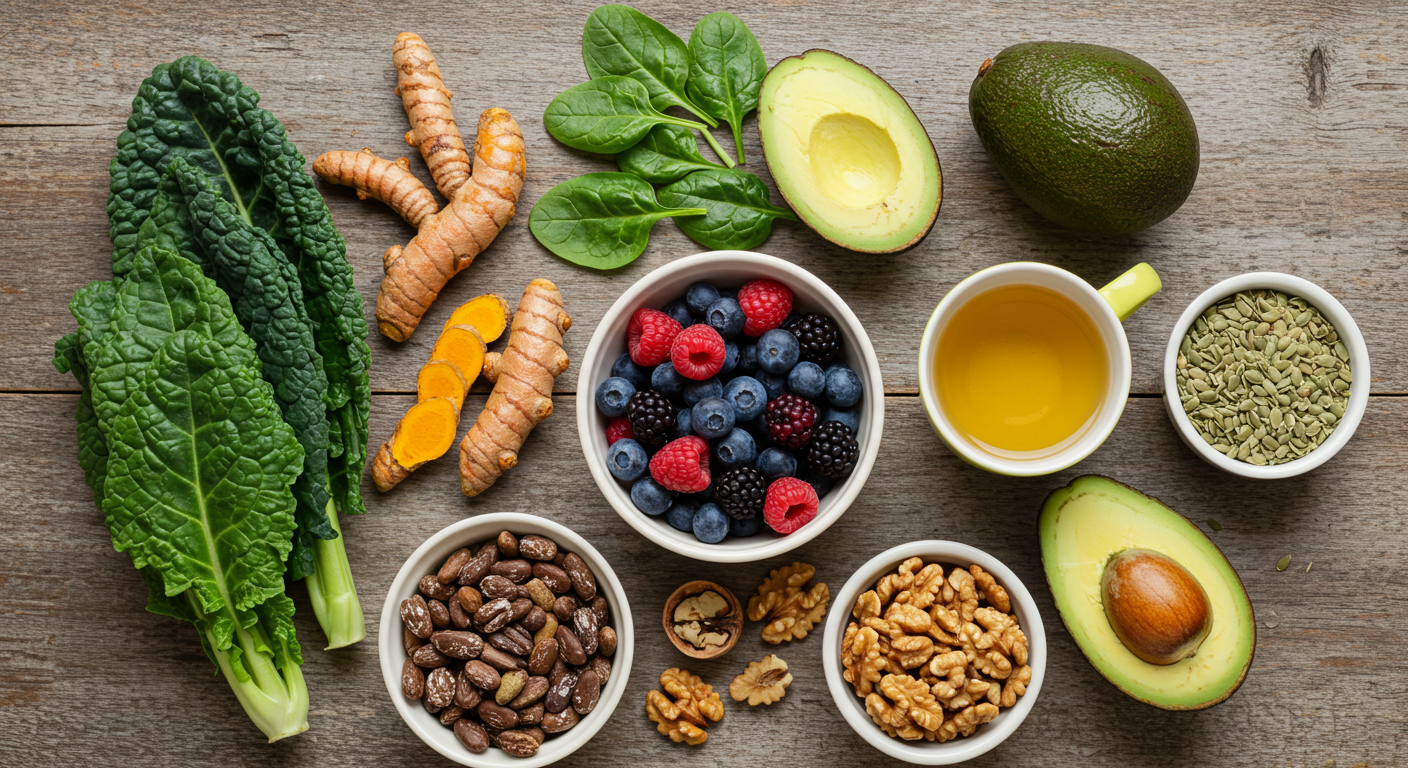
Final tips for an anti-inflammatory lifestyle
Remember, no single food is a magic bullet. The key is consistency and diversity. Aim to fill your plate with colorful, whole foods, reduce processed sugar and seed oils, and stay hydrated. An anti-inflammatory lifestyle is not just about what you add — it’s also about what you crowd out.
Anti-inflammatory foods at a glance
| Food | Key Benefits | How to Include |
|---|---|---|
| Leafy greens | Vitamins A, C, K; antioxidants | Salads, smoothies, sautés |
| Berries | Polyphenols; low sugar | Snacks, toppings, smoothies |
| Turmeric | Curcumin; anti-inflammatory | Add to curries, teas, smoothies |
| Fatty fish / Omega-3s | Reduces cellular inflammation | Grilled fish, seeds in meals |
| Avocados | Monounsaturated fats; vitamin E | Salads, toast, spreads |
| Green tea | Polyphenols; antioxidants | Drink hot or iced daily |
| Cruciferous vegetables | Sulforaphane; detox support | Roast, steam, or sauté |
Further reading
Curious about foods that can help balance your gut naturally? Check out our post How to Improve Gut Health Naturally for tips on diet, hydration, and lifestyle habits that promote a happy gut.


